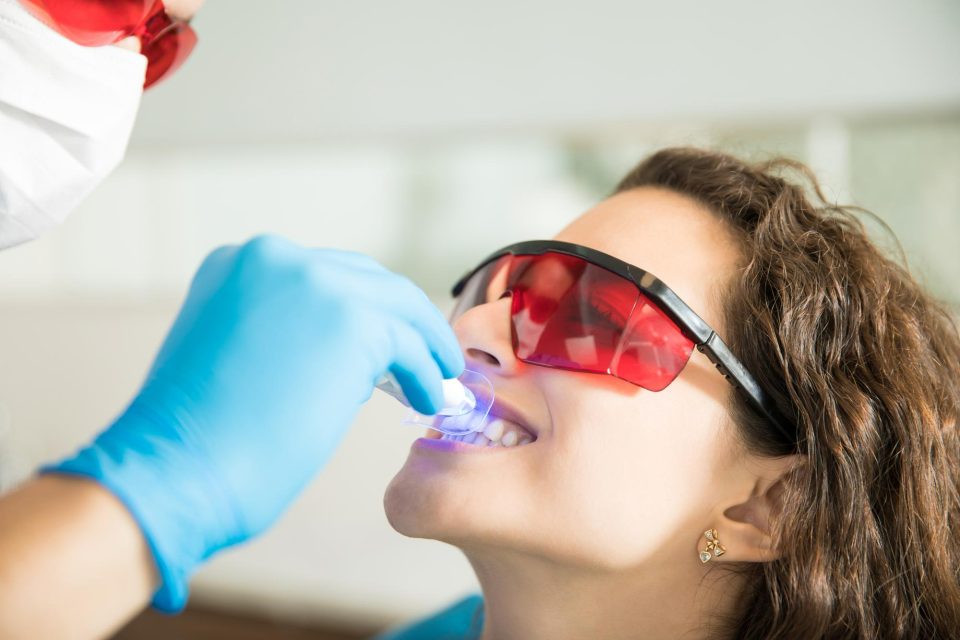
Why You Should Never Skip Your Dental Cleanings
January 20, 2025
Dental emergencies can happen unexpectedly, causing pain and discomfort that require immediate attention. Knowing how to respond in these situations can help prevent further damage and alleviate pain before seeing a dentist. This quick guide will walk you through the most common dental emergencies and the steps you should take to handle them.
1. Severe Toothache
Symptoms: Persistent, throbbing pain, swelling, fever, or sensitivity to hot and cold.
What to Do:
- Rinse your mouth with warm water to remove any debris.
- Floss gently to ensure there’s nothing stuck between your teeth.
- Take over-the-counter pain relief, like ibuprofen, but avoid placing aspirin directly on the gums.
- Apply a cold compress to the outside of your cheek to reduce swelling.
- See a dentist as soon as possible, as severe pain may indicate an infection or deep cavity.
2. Knocked-Out Tooth
What to Do:
- Pick up the tooth by the crown (top) and avoid touching the root.
- Rinse the tooth gently with water without scrubbing it.
- Try to place the tooth back into its socket. If that’s not possible, store it in milk or saliva to keep it moist.
- Seek emergency dental care immediately—there’s a higher chance of saving the tooth if treated within 30–60 minutes.
3. Chipped or Broken ToothWhat to Do:
What to Do:
- Rinse your mouth with warm water to clean the area.
- If there is bleeding, apply gauze or a clean cloth for a few minutes.
- Use a cold compress on the cheek to reduce swelling.
- If possible, save any broken tooth fragments and bring them to the dentist.
- Avoid eating hard foods until you see your dentist.
4. Lost or Loose Dental Filling/Crown
What to Do:
- If a filling falls out, you can place sugar-free gum or over-the-counter dental cement into the cavity temporarily.
- If a crown falls off, clean it and try to reattach it using dental cement or toothpaste until you can visit a dentist.
- Avoid chewing on the affected side until the issue is resolved.
5. Broken or Dislodged Braces or Wires
What to Do:
- If a wire is poking your cheek or gum, use the eraser end of a pencil to gently push it into a more comfortable position.
- Cover the sharp end with orthodontic wax or a cotton ball to prevent irritation.
- Do not cut the wire yourself—see your orthodontist as soon as possible.
6. Abscess or Swollen Gums
What to Do:
- Rinse your mouth with warm saltwater to help reduce bacteria and pain.
- Avoid popping or pressing on the abscess.
- Take pain relievers if needed.
- Seek urgent dental care as an abscess can lead to a severe infection if left untreated.
7. Soft Tissue Injuries (Lip, Tongue, or Gums)What to Do:
- Rinse your mouth with salt water or antiseptic mouthwash.
- Apply gentle pressure with gauze to control bleeding.
- Use a cold compress to minimize swelling.
- If bleeding persists for more than 10 minutes, seek medical attention immediately.
When to Visit an Emergency Dentist
While some minor dental issues can wait for a regular appointment, seek emergency dental care immediately if you experience:
- Uncontrollable bleeding
- Severe pain that doesn’t subside with painkillers
- A knocked-out tooth
- Signs of infection, such as swelling, fever, or pus
Emergency Dental Care at I-Dentist Group Centre
At I-Dentist Group Centre, we understand how distressing dental emergencies can be. Our experienced team is dedicated to providing prompt and professional emergency dental care to relieve pain and restore your oral health as quickly as possible. Whether it’s a sudden toothache, a knocked-out tooth, or a broken crown, we’re here to help. If you’re experiencing a dental emergency, don’t wait—contact I-Dentist Group Centre immediately for expert care and relief.



